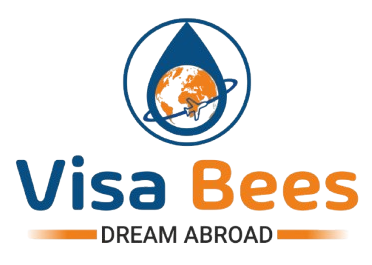🕒Mon – Fri: 9:00 am – 05.00pm

For students
Introduction to Studying abroad
Studying abroad provides students with the chance to experience new cultures, broaden their global perspective, and enhance both their academic and personal growth. It opens doors to unique educational opportunities and future career advantages.
Choosing right study abroad program
Choosing the right study abroad program involves considering factors like academic goals, budget, location, and cultural fit. It’s essential to select a program that aligns with your personal and professional aspirations for a fulfilling and enriching experience.
Application process
The application process for studying abroad typically involves researching programs, meeting eligibility requirements, submitting necessary documents such as transcripts and essays, and securing visas or permits. It’s important to start early and stay organized to ensure a smooth application experience.
Scholarships, Funding and Budgeting
Securing scholarships and funding for studying abroad involves researching available grants, university-specific scholarships, and external funding options to ease financial burden. Effective budgeting is crucial to manage living expenses, travel costs, and unforeseen expenses while abroad.
Visa and Immigration information
Visa and immigration requirements for studying abroad vary by country and program, typically requiring proof of acceptance, financial stability, and health insurance. It is essential to carefully review and comply with all necessary documentation and deadlines to ensure a smooth entry into the host country.
Accommodation and living arrangements
Accommodation and living arrangements for studying abroad can include options like university dormitories, shared apartments, or homestays, depending on the program and location. It’s important to research and choose the most suitable option based on budget, comfort, and proximity to the university or campus.
Cultural Adaption and support
Cultural adaptation involves adjusting to new customs, languages, and social norms while studying abroad, which can be both challenging and rewarding. Many universities offer support services, including orientation programs and counseling, to help students navigate cultural differences and enhance their experience.
Health and Safety
Health and safety are crucial aspects of studying abroad, requiring students to ensure they have proper health insurance and are aware of local medical facilities and emergency procedures. It’s important to stay informed about any safety advisories and take necessary precautions to protect personal well-being while abroad.
Part time jobs, Internships and work opportunities
Part-time jobs, internships, and work opportunities while studying abroad can provide valuable work experience, help students financially, and offer insights into the local job market. However, it’s important to understand visa restrictions and manage time effectively to balance work with academic responsibilities.
Travel and Exploration
Studying abroad offers the unique opportunity to travel and explore new destinations, enriching the cultural experience and creating lifelong memories. Students can take advantage of their time abroad to visit nearby cities, landmarks, and natural wonders while learning about diverse cultures and histories.
Academic life and study tips
Academic life while studying abroad may involve different teaching styles, expectations, and course structures, requiring students to adapt and stay organized. Effective study tips include time management, seeking academic support when needed, and engaging actively in class discussions to make the most of the international learning experience.
Returning home and staying connected
Returning home after studying abroad can be an adjustment, as students may experience reverse culture shock and a sense of separation from their international experience. Staying connected with friends, professors, and local contacts abroad, as well as reflecting on personal growth, can help maintain those valuable connections and integrate the experience into daily life.
Student support services
Student support services for studying abroad provide essential assistance with academic, emotional, and logistical challenges, offering resources like counseling, language support, and career guidance. These services help ensure a smooth transition and a successful, enriching experience while abroad.
Post Graduation opportunities
Post-graduation opportunities after studying abroad include enhanced career prospects, as employers value international experience, cultural adaptability, and global perspectives. Additionally, students may have the chance to work abroad, pursue further studies, or leverage their global network for career advancement.
Student testimonials and Experiences
Student testimonials and experiences provide valuable insights into the realities of studying abroad, offering firsthand accounts of academic challenges, cultural adjustments, and personal growth. These stories can help prospective students make informed decisions and better prepare for their own international journey.
